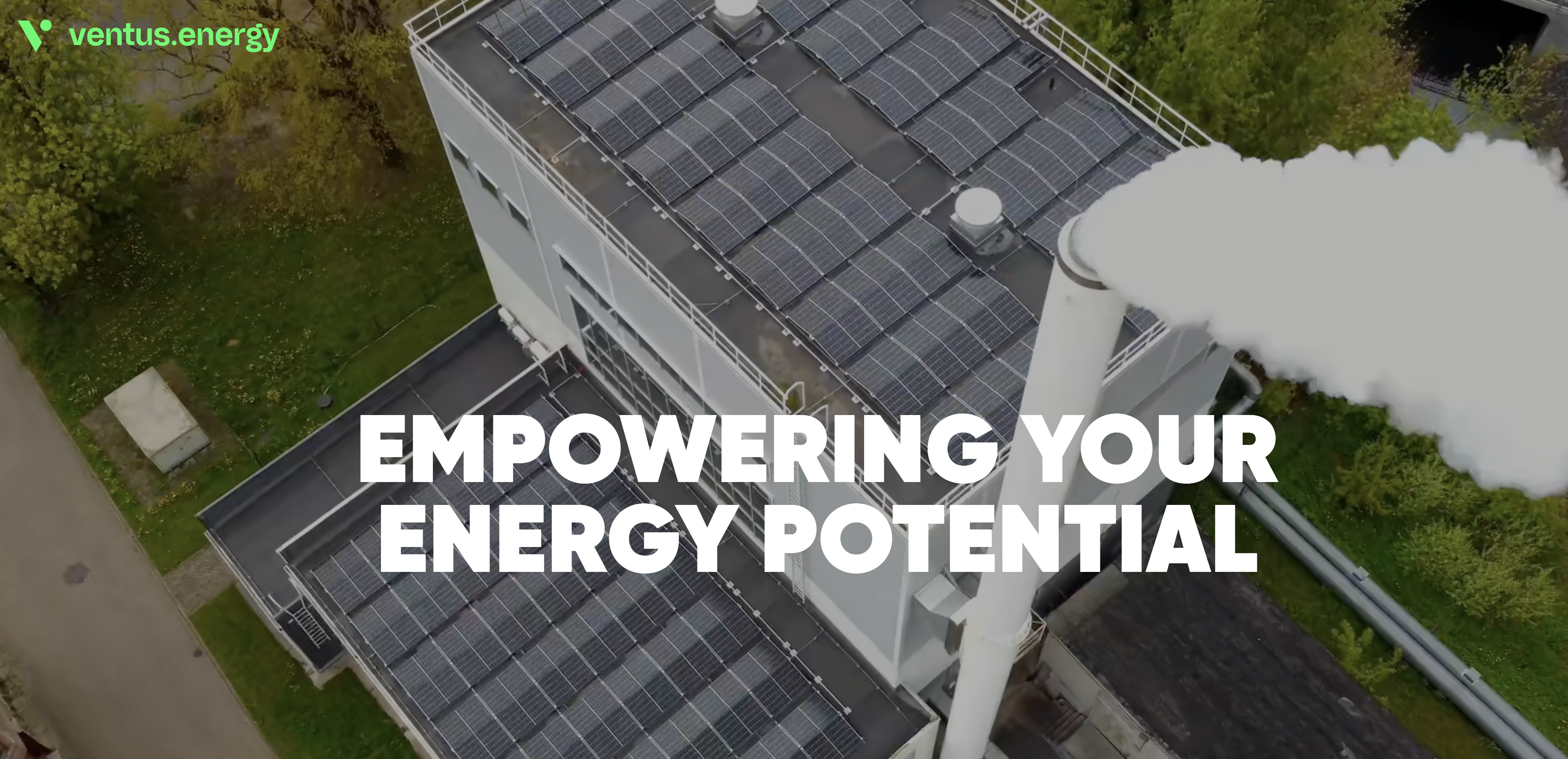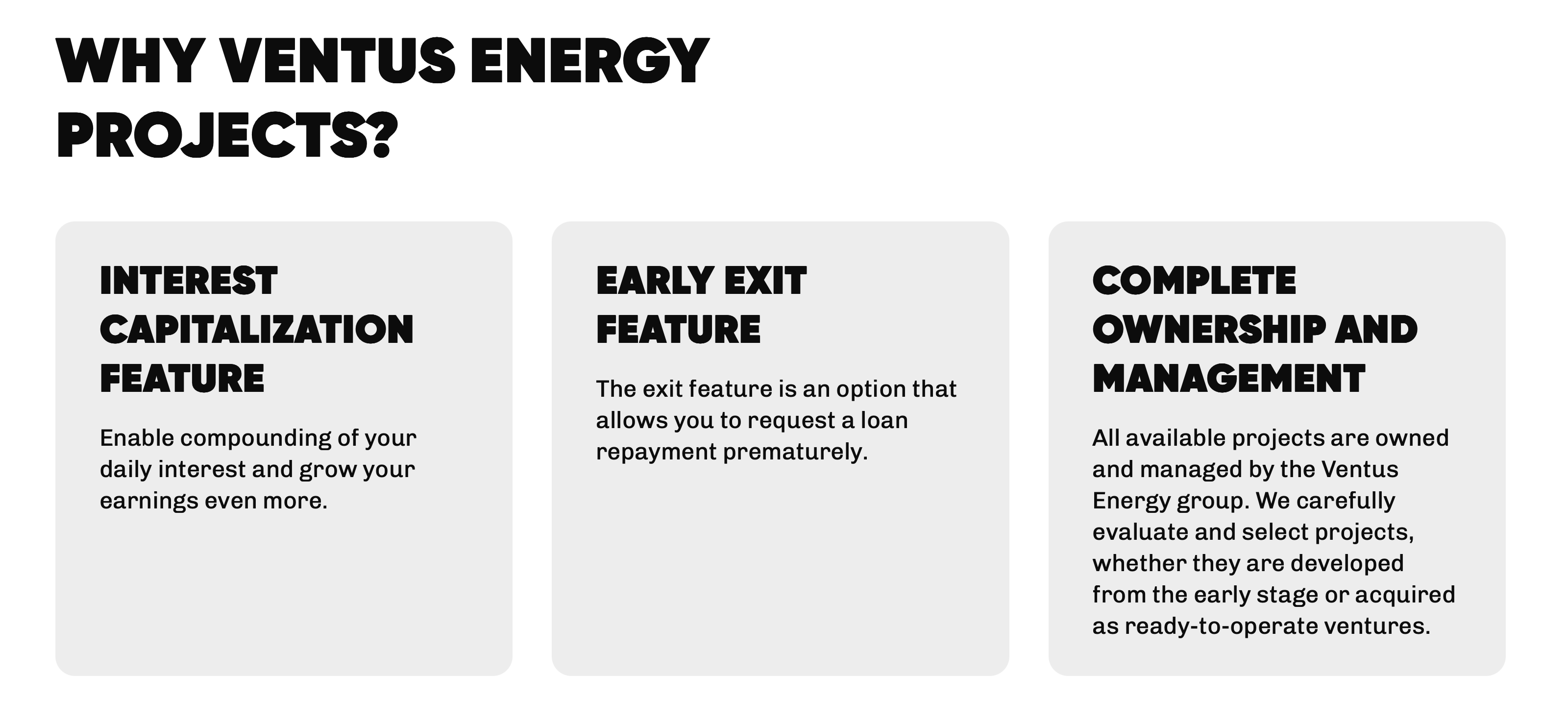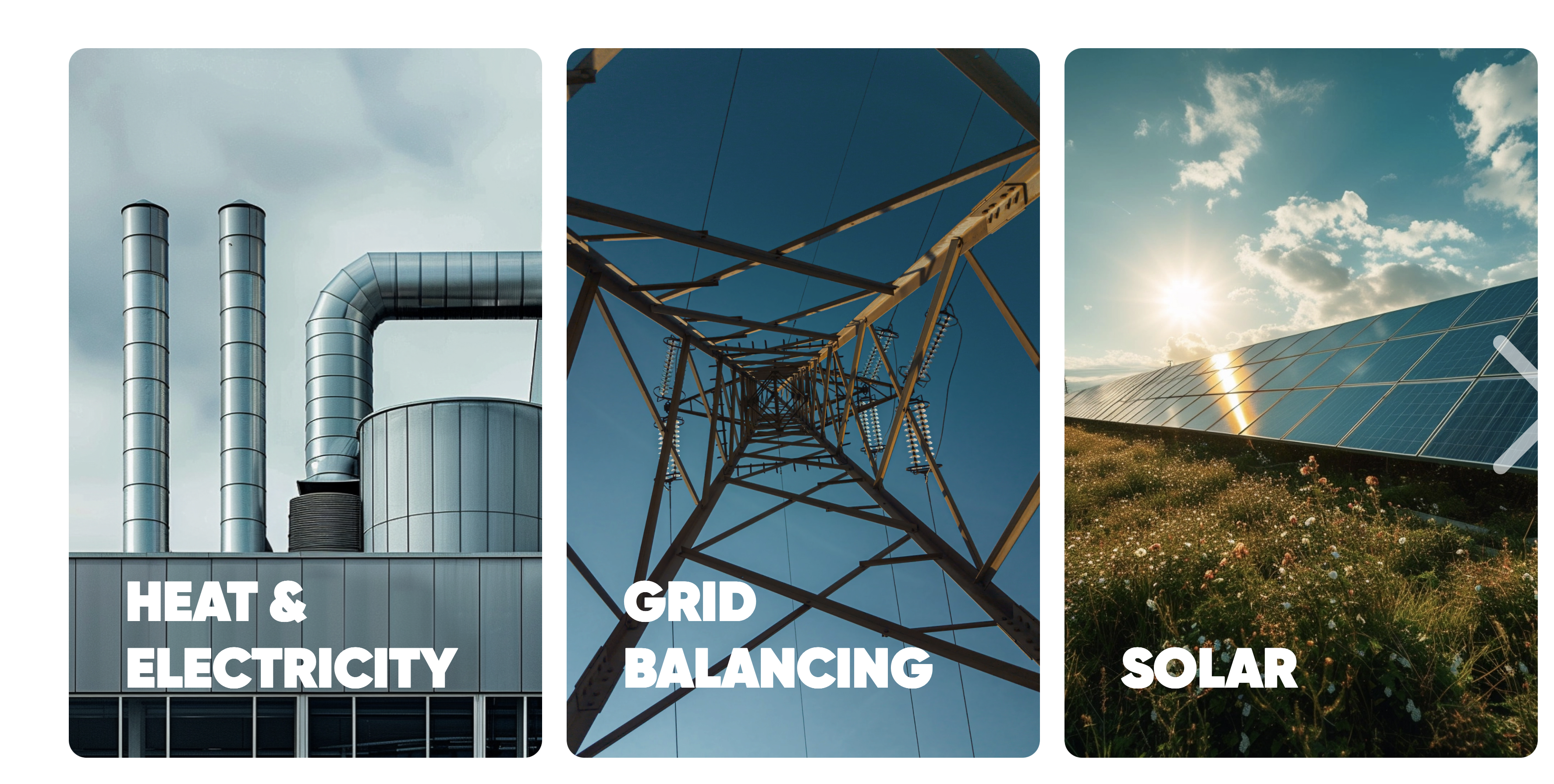In 2025, the landscape of investment is increasingly shifting towards sustainable and impactful opportunities. For those looking to combine robust financial returns with a positive environmental footprint, Ventus Energy stands out as a pioneering platform. Ventus Energy offers investors a unique gateway into the burgeoning renewable energy sector, providing direct access to meticulously selected projects that are not only financially promising but also contribute significantly to a greener future.

As the global demand for clean energy continues to soar, Ventus Energy positions itself at the forefront, offering a transparent and rewarding avenue for both seasoned and new investors. Through a streamlined process, you can unlock diverse lending opportunities directly within the energy sector, fostering growth in crucial areas like solar and wind power. This isn't just about investing; it's about becoming a part of the solution to climate change while securing your financial future.
Direct Access to High-Yield Energy Sector Projects
Ventus Energy distinguishes itself by providing you with DIRECT ACCESS TO THE ENERGY SECTOR PROJECTS. Unlock unique lending opportunities in the energy sector with Ventus Energy! The platform facilitates direct loans to regulated businesses, ensuring a layer of security and compliance that is crucial for investor confidence.

These loans are robustly secured by property, physical assets, and commercial pledges, offering a strong foundation for your investment. Ventus Energy categorizes its lending opportunities into two main types to suit various risk appetites and return expectations:
Senior Loans: Starting from an attractive 6% p.a., these loans offer a more conservative yet still rewarding investment option, backed by strong collateral.
Mezzanine Loans: For investors seeking higher returns, Mezzanine loans can reach 20% p.a. or more, providing significant earning potential by taking on a slightly higher, yet still carefully managed, level of risk.
This tiered approach allows investors to tailor their portfolios according to their financial goals and comfort levels, all while contributing to vital energy infrastructure projects across Europe and beyond.
Seamless Investing Experience and Rewarding Features
Ventus Energy prioritizes a user-friendly and highly efficient investing experience. Once you join, you can enjoy daily interest payouts, providing a consistent flow of returns on your investments. You can easily monitor your portfolio's growth through your personalized user dashboard, which offers comprehensive insights into your earnings and project performance.
To further BOOST YOUR RETURNS EFFORTLESSLY, Ventus Energy offers a daily interest capitalization feature. By enabling this compounding option, your daily interest can be reinvested automatically, accelerating your earnings over time. Alternatively, if you prefer liquidity, you can receive your interest anytime directly to your account.
 The journey to becoming an impact investor with Ventus Energy is straightforward:
The journey to becoming an impact investor with Ventus Energy is straightforward:
JOIN: Complete the simple signup form and pass the verification process to become part of a greener future.
UNLOCK PROJECTS: Gain access to limited opportunities, allowing you to carefully evaluate our energy sector projects that align with your investment criteria.
START EARNING: Accrue daily profits and enjoy the easiness of managing your funds through the intuitive user dashboard.
Ventus Energy also offers an exclusive incentive for its early supporters with The Founder's Reward. As one of our first 100 financing partners who reaches a portfolio of 100,000 EUR, you will enjoy an extra annual interest rate of 2%. This showcases Ventus Energy's commitment to rewarding those who contribute significantly to its initial growth and vision. Don't miss out on this opportunity – sign up to explore it today!
Why Choose Ventus Energy? A Commitment to Ownership and Impact
WHY VENTUS ENERGY PROJECTS? The answer lies in their comprehensive approach to project management and investor benefits. Ventus Energy is not just a platform; it's a vertically integrated group that ensures complete control and quality at every stage. All available projects are owned and managed by the Ventus Energy group itself. This means they are directly involved in the careful evaluation and selection of projects, whether they are developed from the early stage or acquired as ready-to-operate ventures. This hands-on approach minimizes risks and maximizes potential, instilling confidence in investors.
Beyond the core offering, Ventus Energy enhances the investor experience with key features:
INTEREST CAPITALIZATION FEATURE: As mentioned, this allows you to enable compounding of your daily interest, significantly growing your earnings over time. It's a powerful tool for long-term wealth accumulation.
EARLY EXIT FEATURE: Flexibility is key for investors. The early exit feature is an option that allows you to request a loan repayment prematurely, providing liquidity when you need it most. This feature provides an added layer of financial control rarely seen in similar investment platforms.
Ventus Energy is built on a foundation of transparency, control, and a deep commitment to sustainable energy development. By investing with them, you're not just buying into a financial product; you're becoming a stakeholder in the future of renewable energy, benefiting from expert project selection and robust management.
Join the Green Energy Revolution with Ventus Energy
Ventus Energy offers a compelling opportunity for investors seeking both significant financial returns and a tangible positive impact on the environment. With its direct access to vetted energy sector projects, competitive interest rates (Senior loans from 6% p.a., Mezzanine up to 20% p.a. or more), daily interest payouts, and the powerful interest capitalization feature, it provides a comprehensive and rewarding investment experience.
The Founder's Reward is a testament to Ventus Energy's dedication to its early community, while the complete ownership and management of projects underscore their commitment to quality and success. If you're ready to diversify your portfolio, contribute to a sustainable future, and earn attractive returns, Ventus Energy is the platform for you.
Take the first step towards empowering the renewable energy transformation. Sign up today and explore the unique investment opportunities waiting for you.